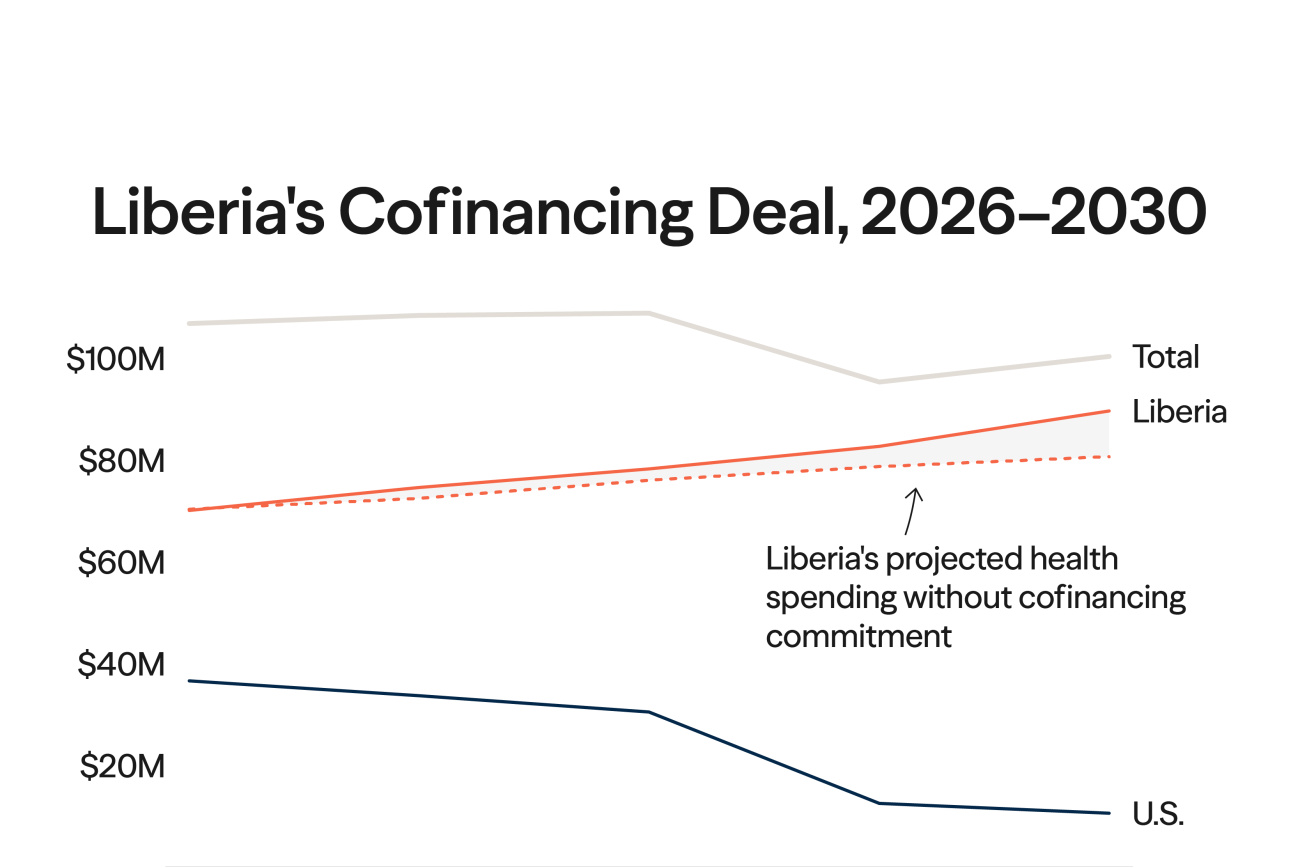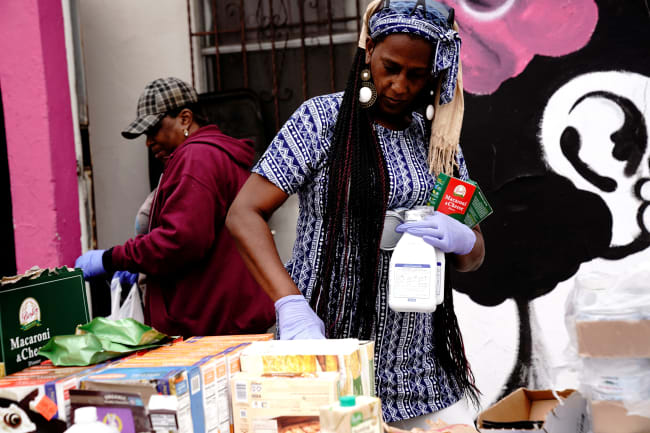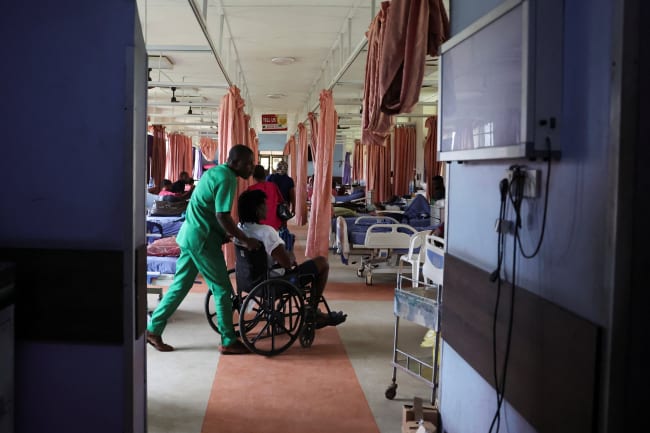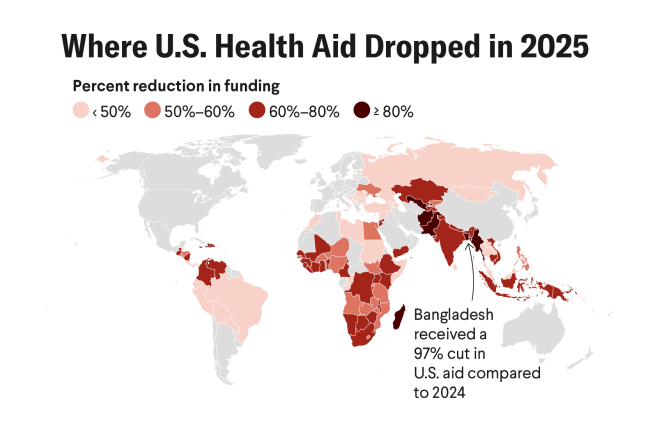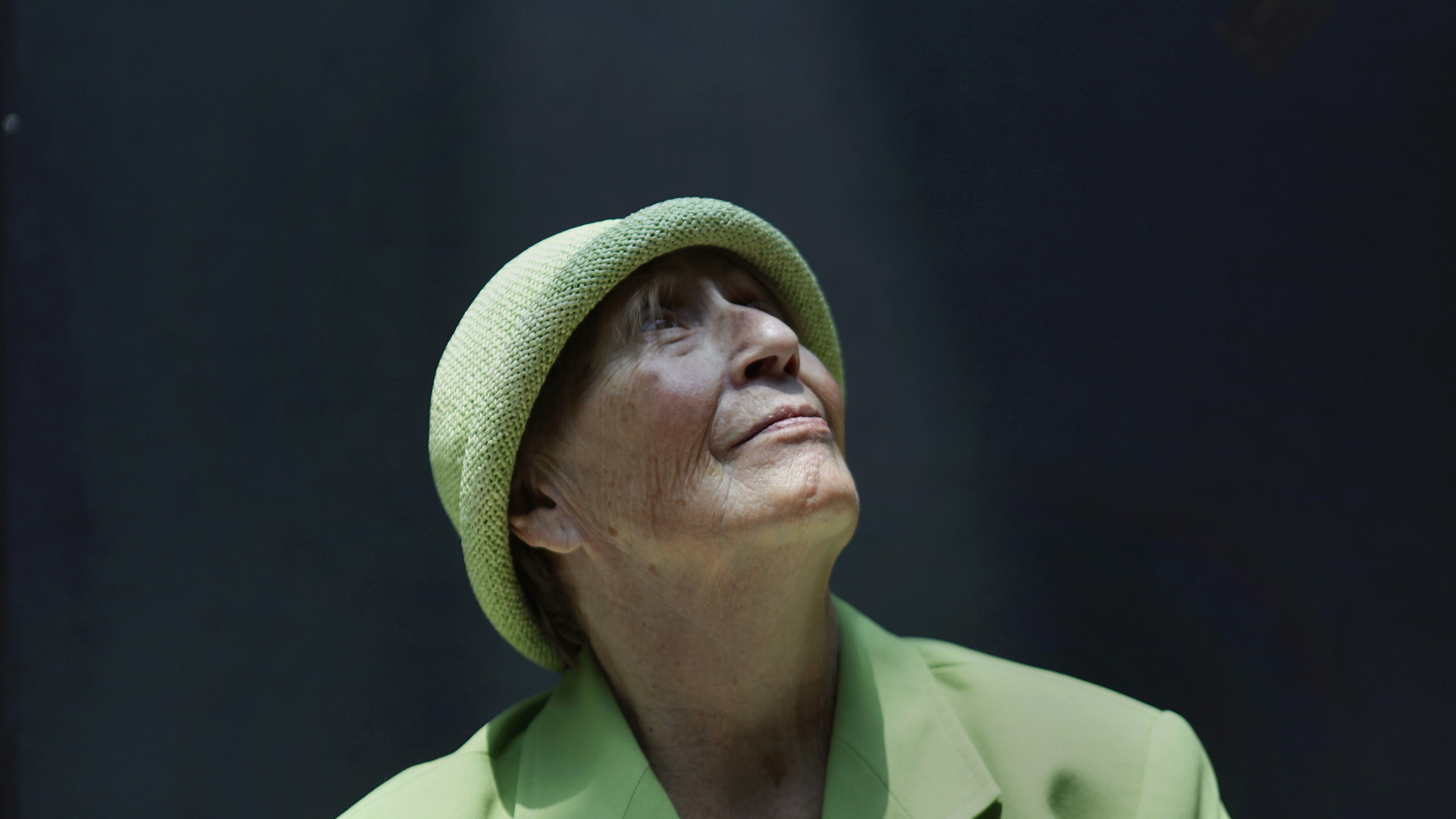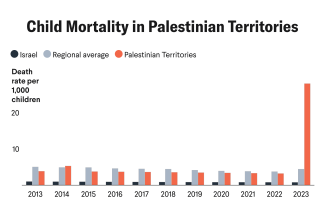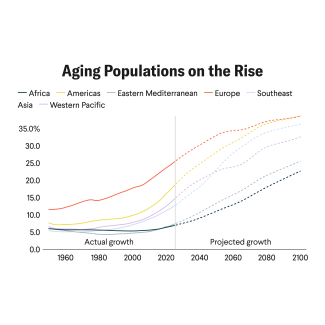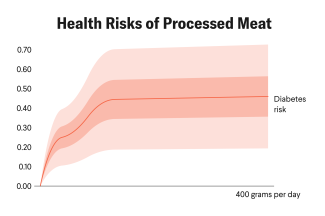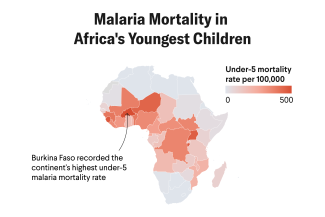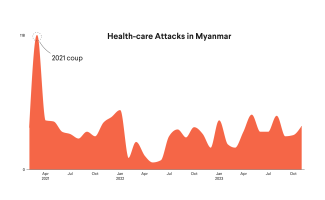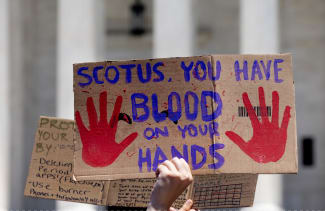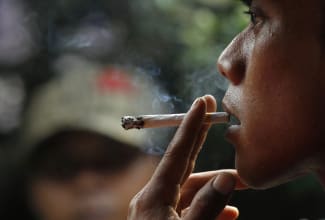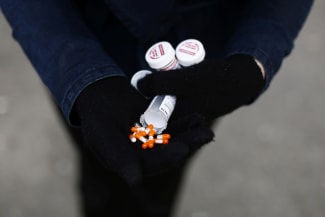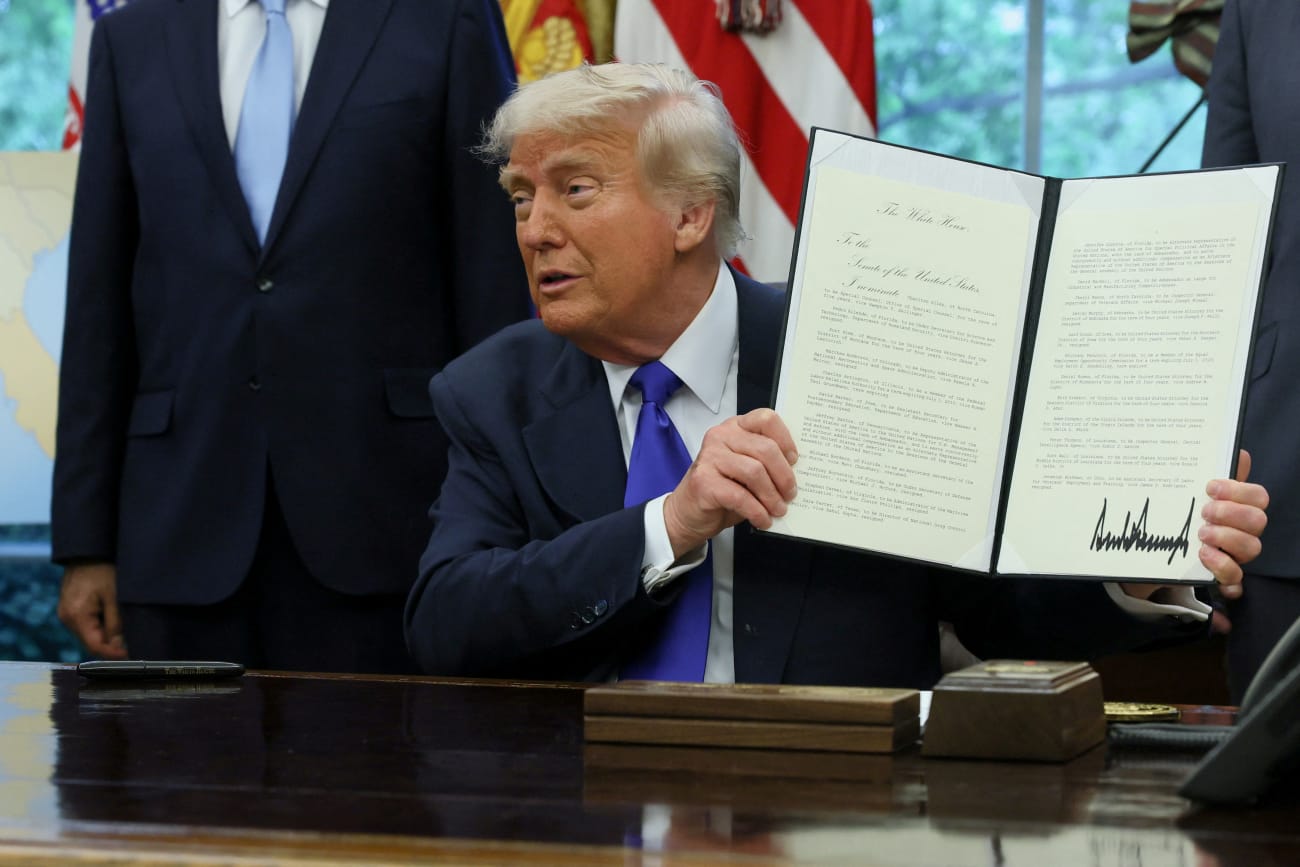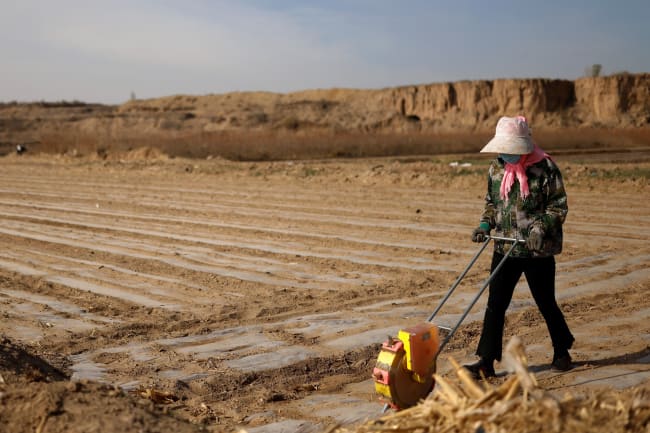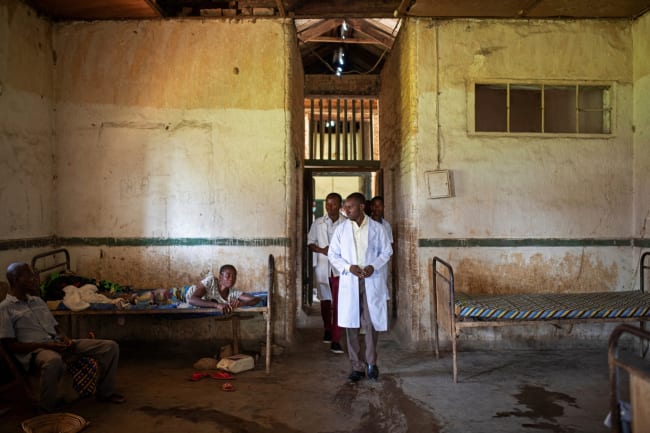Governance
Governance
Tracking the "America First" Bilateral Health Agreements
Think Global Health's analysis found gaps between country needs and new cofinancing commitments with the United States
The Latest
Data Focus
Governance
Governance
Vaccine-Preventable Disease: A Global Tracker
This map is updated weekly and visualizes outbreaks of nine childhood diseases in collaboration with the International Society for Infectious Diseases
Urbanization
When Working Too Much Turns Deadly
Governance
One Year Post-USAID, Global Health Funding Stuck in Limbo
Data in Global Health
Featured Data Points
Series
See AllIt's time to rethink U.S. engagement on global health
Governance
Governance
A Bio-Responsibility Strategy for Gain-of-Function Research Oversight
Controversy about research on dangerous pathogens requires the U.S. government to adopt a new governance approach
Governance
China's Integrated Policies on Climate Change and Health
A New Public Health Order for Africa
A series exploring a new public health order for Africa, guest-edited by Ebere Okereke
Global Health and the "Second Independence of Africa"
The New Humanitarian
Will the Next World Food Program Chief Answer to Trump?
by Sam VigerskyOdds are, a Trump pick could run the world’s largest aid agency. The stakes could not be higher
Health Affairs
A Tale Of Two Mpox Outbreaks
by Nikki Romanik and Stephanie PsakiThe two mpox responses in the United States highlight a public health truism—when preparedness works, it is often invisible to the public
CFR
Beyond Conventional Aid: Institutionalizing Public-Private Partnership in Ukraine’s Humanitarian Response
by Sam VigerskyThe collapse of key aid programs has exposed a critical gap in the international response—one that the United Nations cannot fill alone
Nature
COVID’s Origins: What We Do and Don’t Know
by Marietjie Venter et al.Researchers summarize key insights from the world’s first comprehensive investigation into how a pandemic started
